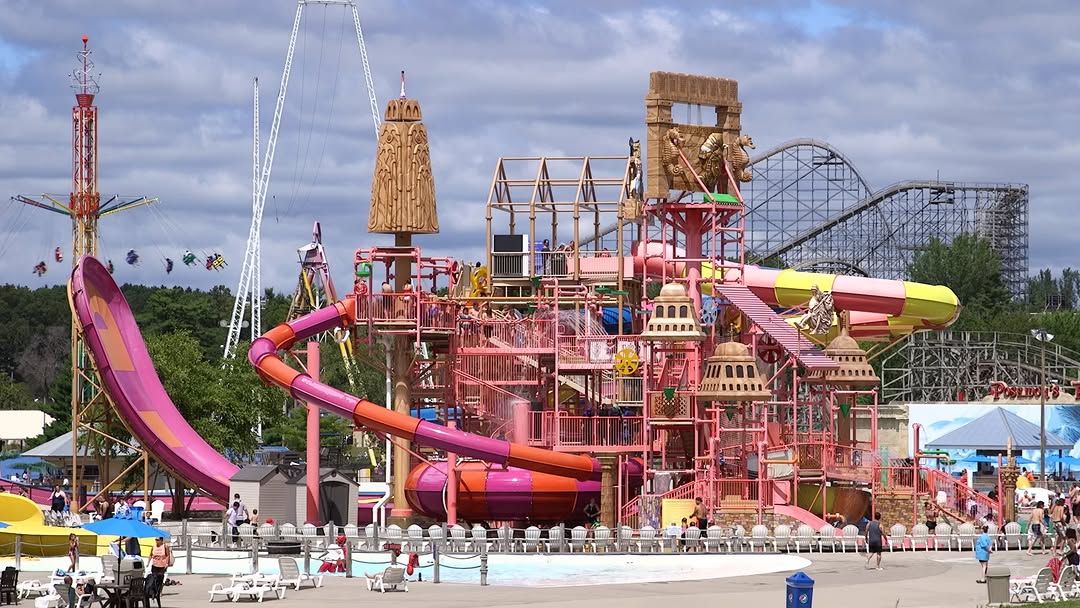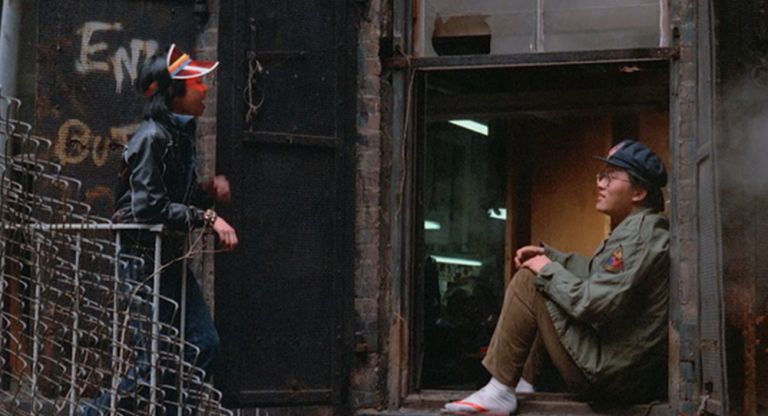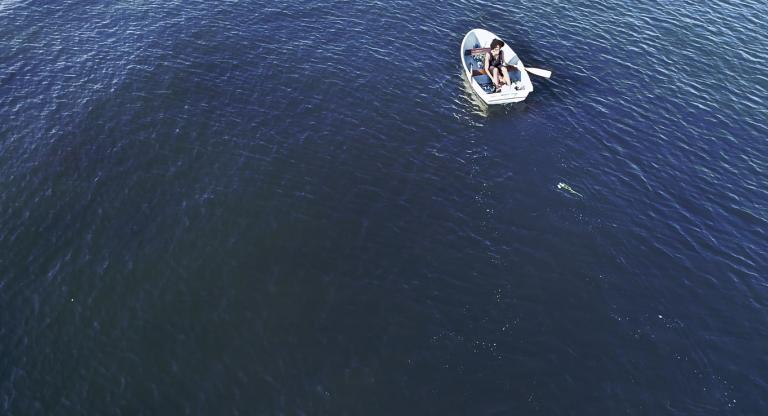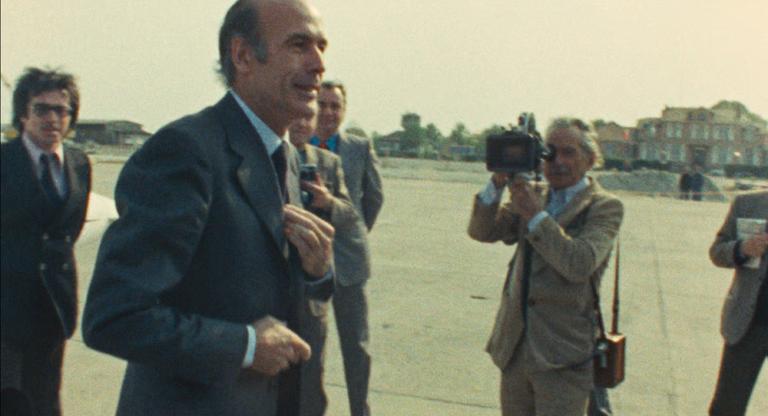Teen comedies and primary school vacations have conditioned us to view summer as a season for escape. But there’s very little free time on display in Nellie Kluz’s documentary The Dells (2024) despite it following a group of teenagers throughout a Midwest American summer. These teenagers are students from around the globe—from the Dominican Republic to Jamaica to Turkey—who have been allowed to enter the United States under the watchful eye of the State Department’s J-1 Visa Summer Work Travel Program. Text early in the film quotes the program’s description: a J-1 Visa allows students worldwide to become “exposed to the people and way of life” of the United States during their “summer vacation” from university.
Many of the first-timers arrive starry-eyed. “Everything in America is easy,” one student says. “Even the carrot is cut into pieces.” They become disillusioned quickly, not in the least by the dispatched wisdom of a garrulous ride-share driver named Jason—the film’s most oft-appearing character—who functions as guide, ride, and fact-checker of the American dream. Jason ferries the student workers throughout Wisconsin Dells every night, between Walmarts, fast food restaurants, and their temporary homes. When one student says he would be interested in staying in the United States because of the country’s superior healthcare, Jason lights up at the opportunity to dampen his outlook.
Wisconsin Dells, or “The Dells,” became a spot of commercial tourism due to its unique rock structures and its commendation as the “Waterpark Capital of the World.” It boasts four major water parks—teeming sites of seasonal labor—amidst a sea of kitschy Americana shops, museums, and casinos. Strange, gimmicky structures—a giant Trojan horse, an upside-down White House—contribute to the city’s resemblance to Las Vegas. Two girls from Romania, fresh arrivals to the Dells, are warned by Jason that the workload at the parks is high and pay is low. Each of these parks, he says, are owned by local “multi-millionaires” who “treat you like a number.”
We catch glimpses of the Dells’ attractions, but the camera mostly remains in the margins. Kluz observes the workers as they gather and befriend each other, as well as search for better paying jobs, places to stay, and time to rest. Kluz is adept at finding wry analogies for the workers’ situation throughout the city: on a boat tour of the Wisconsin River, a guide points out bird nests in the rock formations. Migratory birds from Venezuela nest in the Dells every summer, she explains. Each bird has the task of eating “double its body weight in mosquitos” before departing in the fall. The Midwestern mosquitos indeed seem to be a plague upon the city; they are seen terrorizing a group of Turkish students who are living out of a van. One beleaguered young man eventually shouts the film’s most quotable line: “Fuck America and its mosquitos!”
By dryly portraying the gig economy greasing the wheels of a prototypical American commercial destination, The Dells presents a fascinating inverted portrait of Americana. Student workers puzzle over marketing labels on soda cans, dance in a nightclub where Seinfeld is playing on mute, and question the appeal of theme park rides. (“Things that make me dizzy are not good for me,” a student from the DR tells her friends warily as they stare up at a spinning contraption. “Things that put me in danger of my life are not good for me.”) The students even manage to flip Jason’s perspective by the end—one young woman warns him not to get too friendly with any of the out-of-towners: “You’re a walking green card.”
The Dells screens this evening, June 21, and tomorrow June 22, at Anthology Film Archives. Director Nellie Kluz will be in attendance for both screenings.



